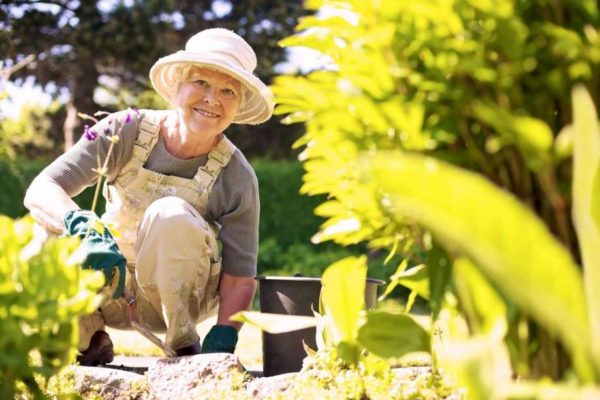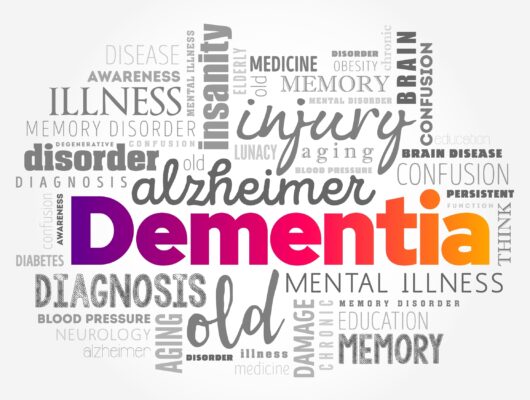

Speech language pathology (commonly referred to as “speech therapy”) is one of the more misunderstood rehabilitative therapies. Many people associate the term with therapy for children. Yet many speech therapists – as is the case at RVNAhealth – specialize in helping adults with medical issues such as stroke and Parkinson’s disease.
The scope of speech therapy is also often underestimated. Speech therapists evaluate and treat patients who have difficulties with speech and language, but also cognitive functioning and swallowing disorders.
“Patients with Alzheimer’s disease, stroke or cancers of the neck or head might lose their ability to chew and swallow,” says RVNAhealth Director of Rehabilitation Services Gigi Weiss, MSPT, CDP, CKTP. Following an assessment, a speech therapist might prescribe treatments to help the patient better use their muscles, strategies to more safely swallow, or a diet of softer foods.
And with COVID-19, another category of patient became more common to speech therapy: individuals requiring intubation or mechanical ventilation. These patients are isolated and distressed, on top of being unable to speak or swallow.
Here, two of RVNAhealth’s talented and thoughtful speech therapists share insights into their careers.
Cheryl Rafferty, MS, CCC-SLP


A resident of Newtown, Cheryl joined RVNAhealth in 2012, treating patients throughout our 28-town service area. She is the proud mother of two daughters, a 17-year-old (a cancer survivor) and a 21-year-old (who graduated from college early).
When and why did you become a speech therapist? I became an SLP because I come from a family of teachers. Both my parents have taught in the public schools. I wanted to blend healthcare with teaching, and I saw that the trajectory for this field was growing. I was 17 years old when I figured that out.
Where do you see patients? I see patients in assisted living facilities and in their homes. Sometimes I see them in our outpatient Rehabilitation & Wellness Center.
What is a favorite moment/time from your career? A favorite moment is when a patient is weaned off of a feeding tube and enjoying food again. Or helping someone to learn how to speak again when it might have seemed impossible to others.
What in your career has surprised you? It has surprised me how stressful the job can be, especially during these times and when working in home health. I have seen a few COVID-19 patients for diet consistency changes and end-of-life issues.
What are some things about the role of speech therapist that might surprise people? It takes six to seven years to become a speech therapist. You must hold at least a master’s in speech and language pathology from an accredited program and complete a Supervised Professional Experience. It has also allowed me the chance to treat some notable people. (Editor’s note: on prompting, Cheryl offered that these people have included a musician, songwriter and Academy awards producer who is very well connected in Hollywood.)
Has your education, training, and experience in ST given you any hidden advantages in communicating in real life? I have learned to be an empathic listener; and the many stressful moments in my life have allowed me the skill to triage beyond my speech therapy skill set. I have learned so much from the nursing staff.
Anything you would care to share about the “off-duty” Cheryl? I love my work with the geriatric population, and I am passionate about pediatric cancer causes. Dance was a huge part of my life growing up. From the age of four, I trained with a former Rockette. Ice skating also kept me out off trouble, and I do still skate and can still do a (more fearful) jump and spin.
I work so much that I have little time to cultivate any hobbies. When there is a moment, I love to cook a great meal, compost, or tend to our little garden each summer. I love Indian food!
Jill Harmer, MS, CCC-SLP


A resident of Ridgefield since 2016, Jill joined RVNAhealth in 2016 with the opening of the Rehabilitation & Wellness Center. She and her husband have three children – the youngest is in the fourth grade, and the oldest is in college.
When and why did you become a speech therapist? After I graduated from Eastern Michigan University, with a degree in biology, I worked as a dorm assistant at a communications disorder clinic at the University of Michigan. People came from all over the country for 6-8 hours per day of intensive speech therapy. In the evening, when faculty weren’t there, I had meals with residents, took them to movies, sporting events, helped them with homework. I loved the people, how they communicated with each other despite their disorders. That led to my decision to return to Eastern Michigan University for my master’s in speech language pathology.
Where do you see patients? There are three settings. Acute care for patients admitted to the hospital for stroke or other medical conditions. The next step is being discharged home or to a rehabilitation facility. Outpatient is step three.I see patients at both ends of the spectrum. At RVNAhealth, I work with patients who are able to visit our outpatient Rehabilitation & Wellness Center. At Danbury Hospital one of my specialties is helping tracheostomy and ventilator-dependent patients swallow and communicate.
What are the characteristics of a good speech therapist? A speech therapist must be someone who listens and can problem-solve outside the box. There’s no cookbook for speech therapy – each person is different. Two people may have Parkinson’s, but their communication disorder can vary considerably.
What is a favorite moment/time from your career? Getting to know people with communications problems on a personal level. Back in Michigan, before I was a speech therapist, I loved being with this small group of people who could feel relaxed in their own environment, socially interacting and having meaningful relationships without having a lot of words. It’s amazing how people can learn to compensate.
What are some things about the role of speech therapist that might surprise people? That we work with swallowing disorders (dysphagia). When I’m consulted to do a swallowing evaluation, the patient will often ask, “Why am I seeing a speech therapist? I don’t have any problem speaking.”
Has your education, training, and professional experience given you any hidden advantages in communicating in real life? I don’t think I have any “super powers,” but I can always detect an accent, even if I can’t always place it.





